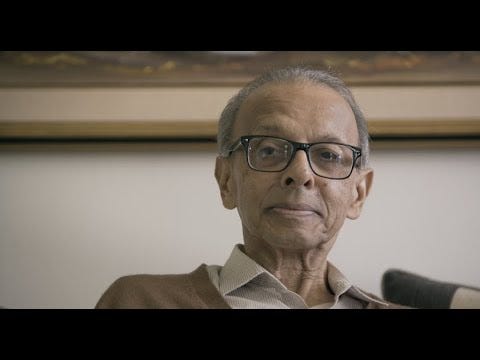We've all seen the grainy footage from newsreels long ago.
Everyone looks as if they're starring in a Charlie Chaplin film comically moving at a fast trot.
Peter Jackson, the director of the Lord of the Rings trilogy turned his attention to real life events a few years ago.
In 2018, he released a documentary edited from over 100 hours of footage of the first world war from the Imperial War Archives.
The film was called 'They Shall not Grow Old' and received a BAFTA nomination for the best documentary that year.
When you see the trailer, it's hard to believe that the film was not shot recently. The colour palette and the movement have been restored to a pristine condition and the film takes you back to what it meant being a soldier in the barracks in 1914.
The audio was restored as well and it's an amazing trip back in time.
Jackson has now put the spotlight on the most iconic music group of the last century - The Beatles. Comprising of footage shot from nearly 60 hours of their music recordings in 1969, it captured the magic that the creative process involves.
We often think about what it took to make the creative leap and while it is hard to document, music offers a glimpse - with all the camaraderie, the controversy, the backbiting and the egos clashes involved.
And we see the nuts and bolts of a classic come into being. Something a time machine allows you to do.
Be in the studio during a recording and in the trenches during the war.
Hacking diabetes treatment
For those patients diagnosed with diabetes early on, managing the condition is a challenge.
They can swing between low and high blood sugar levels over the course of a day, depending on the diet intake and exercise.
In most cases, it involves taking blood samples from the finger several times a day and calculating the precise amount of insulin that needs to be injected.
An open source project - Automated Insulin Delivery (AID) systems automatically adjust the insulin doses required by the body and keeps it steady.
The problem is that this is not a standard measure and has to be calibrated for each person depending on their condition.
And among the several issues involved, this delivery system was created by people who weren't medical professionals or by certified labs.
In what is possibly a medical landmark, these systems have been approved by a team of medical experts from Kings College in London.
While there are blood pressure and glucose monitors that have been built into smart watches, this is the kind of progress that will have far-reaching impact.
There's even a term in the report which describes it - citizen led science.
Traditionally, this kind of research could have taken years because of the regulatory controls that are in place for good reason.
No one wants the process trivialised or patients falling victims to scams.
While it could help patients with severe diabetes manage their condition better, there are significant risks from overdosing and needs to be used with abundant caution by patients who know the risks involved.
Pass the salt, please
It is the first thing that doctors ask people to cut from their diets to counter blood pressure or a cardiac issue.
But salt is far more essential to life than we can fathom.
It may be the least expensive item on the kitchen shelf, but it has fueled wars and revolutions when access or supply was restricted.
The largest consumer of salt in the world is the US but it's not related to diets at all - salt is the only way to keep roads navigable after snowstorms.
It's used to de-ice roads and keep traffic flowing.
Salt domes are what geologists look for in the hunt for oil reserves. Salt rocks are impenetrable, and the organic matter trapped within gradually becomes oil over centuries. The US emergency reserves of oil are stored in salt mines.
And here's the interesting bit. The amount of salt in the human body at 0.4 % of body weight is roughly equal to the salt concentration in seawater.
At 70 kgs of body weight, we have roughly 280 gms of salt. And when we lose it through sweat, it has to be continually replaced because it plays a key role in many functions, from the quality of blood to transmission of nerve signals.
And the simplest way to beat dehydration is to replace the salt. All those electrolytes are mostly sodium.
Let's not forget our own tryst with salt - the Dandi march by Mahatma Gandhi was a shrewd and game changing move because the English underestimated the power it would have.
The salt of the earth is the salve of our lives.
Every week, I'll plant a few ideas in your mind on branding, behavior and markets. Triggers for your thoughts. Spread the word to your friends. All you have to do is click the link and enter an email address.











